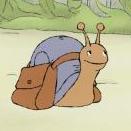-
Welcome to the eG Forums, a service of the eGullet Society for Culinary Arts & Letters. The Society is a 501(c)3 not-for-profit organization dedicated to the advancement of the culinary arts. These advertising-free forums are provided free of charge through donations from Society members. Anyone may read the forums, but to post you must create a free account.
The Tasting Triangle Test
-
Similar Content
-
- 326 replies
- 73,765 views
-
- 496 replies
- 112,390 views
-
- 59 replies
- 14,363 views
-
- 41 replies
- 15,712 views
-
- 15 replies
- 2,741 views
-
-
Recently Browsing 0 members
- No registered users viewing this page.






Recommended Posts